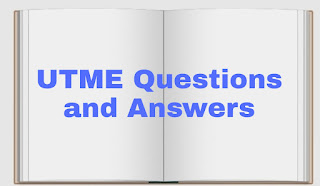UTME Government Questions and Answers
Here are 20 UTME Government questions along with options and their correct answers:
Who is considered the father of modern political science?
A) Karl Marx
B) Niccolò Machiavelli
C) John Locke
D) Thomas Hobbes
Answer: B) Niccolò Machiavelli
Democracy is best described as a system of government by the:
A) Few
B) Elite
C) Ruling class
D) People
Answer: D) People
The concept of the separation of powers was popularized by:
A) Jean-Jacques Rousseau
B) Baron de Montesquieu
C) John Stuart Mill
D) Voltaire
Answer: B) Baron de Montesquieu
The type of government where power is concentrated in the hands of a single ruler is called:
A) Monarchy
B) Oligarchy
C) Democracy
D) Theocracy
Answer: A) Monarchy
Which of the following is not a function of government?
A) Protection of citizens
B) Provision of public goods
C) Regulation of the economy
D) Maximizing profits
Answer: D) Maximizing profits
The Universal Declaration of Human Rights was adopted by the:
A) United Nations
B) African Union
C) European Union
D) World Trade Organization
Answer: A) United Nations
The principle of federalism is characterized by:
A) A strong central government
B) A weak central government
C) Division of powers between central and regional governments
D) The absence of government control
Answer: C) Division of powers between central and regional governments
The political ideology that advocates for the abolition of private property and the establishment of a classless society is:
A) Liberalism
B) Socialism
C) Capitalism
D) Fascism
Answer: B) Socialism
Which of the following is an example of a bicameral legislature?
A) House of Commons
B) House of Representatives
C) Senate
D) Parliament
Answer: D) Parliament
The principle of the rule of law means that:
A) Laws should be made by the people
B) Laws should be made by the judiciary
C) Laws should be made by the executive
D) Everyone is subject to the law
Answer: D) Everyone is subject to the law
The executive branch of government is responsible for:
A) Making laws
B) Interpreting laws
C) Enforcing laws
D) Adjudicating laws
Answer: C) Enforcing laws
A system of government in which power is held by a small group of people is called:
A) Democracy
B) Autocracy
C) Oligarchy
D) Totalitarianism
Answer: C) Oligarchy
The head of government in a parliamentary system is usually the:
A) President
B) Monarch
C) Prime Minister
D) Speaker of the House
Answer: C) Prime Minister
Which of the following is a characteristic of a unitary system of government?
A) Power is divided between central and regional governments
B) Power is concentrated in the hands of a single ruler
C) Power is shared equally among all citizens
D) Power is centralized in the central government
Answer: D) Power is centralized in the central government
The concept of the social contract was proposed by:
A) Thomas Hobbes
B) John Locke
C) Jean-Jacques Rousseau
D) Immanuel Kant
Answer: B) John Locke
The principle of popular sovereignty means that political power resides with the:
A) Ruling class
B) Monarch
C) People
D) Military
Answer: C) People
Which of the following is not a branch of government?
A) Legislative
B) Executive
C) Judicial
D) Administrative
Answer: D) Administrative
The process by which citizens vote to remove an elected official from office before their term is over is called:
A) Recall
B) Referendum
C) Plebiscite
D) Initiative
Answer: A) Recall
The concept of checks and balances is designed to prevent:
A) Abuse of power
B) Executive authority
C) Legislative dominance
D) Judicial interference
Answer: A) Abuse of power
The right to freedom of speech is protected by which amendment in the United States Constitution?
A) First Amendment
B) Second Amendment
C) Fifth Amendment
D) Tenth Amendment
Answer: A) First Amendment
I hope these questions help you in your preparation.

Post a Comment